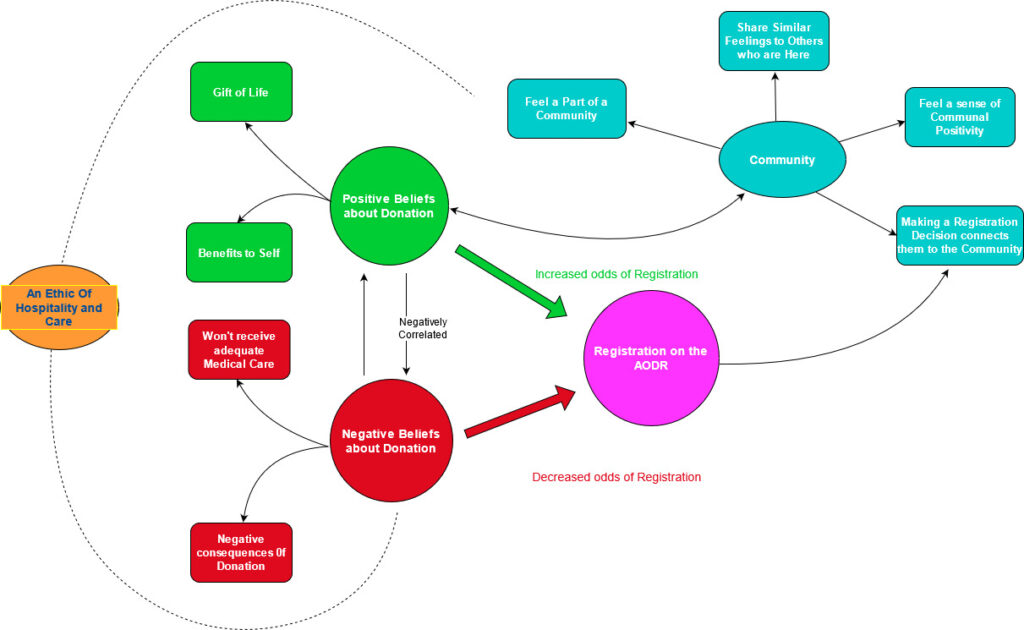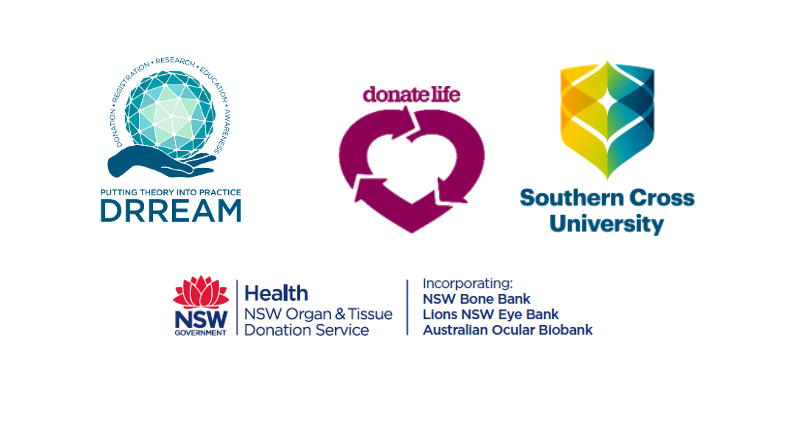What does community have to do with organ donation?
By Gail Moloney, Michael Sutherland, Leah Upcroft, Rachel Clark, Parul Punjabi-Jagdish,
Suzanne Rienks, Alison Bowling & Iain Walker
Feeling that we belong to or are part of a community can make us feel positive, counter feelings of isolation and motivate us to take actions that we wouldn’t necessarily do on our own. These feelings can be understood through a geographical tie or an attachment to a physical place, or by psychologically feeling a part of, or belonging to, a group of people or a community.
There are multiple definitions as to what community is. Less known perhaps is the idea that community can be a socially-constructed space; something that is co-constructed between people through what is perceived to be shared or not shared. We investigate this in our recent study published in PLos One.
In this study, we approached the public in the foyer of a large inner-city public hospital and invited them to engage with us in a non-proselytizing dialogue about organ donation. This interaction was couched in an ethic of hospitality and care – that is, the interaction was embedded in care and openness, and oriented to the other person.
We use the phrase “a non-proselytizing dialogue” to highlight that in this context dialogue is in effect the opposite of proselytizing (Proselytize: preach or convert someone to something).
Our approach is to engage in a dialogue with the other person about what organ donation means to them and to us. It is about meeting the person where they are and engaging with them in open and respectful dialogue.
Rather than being a one-sided proselytizing dialogue about the benefits of organ donation, which is often what happens when people try and encourage others to become an organ donor, this non-proselytizing dialogical interaction acknowledges the individual as a co-creator of the exchange, focusing on understanding and validating what the other person thinks; creating the potential for shared social knowledge and norms to be brought together.
Did you know that:
- People can register their donation decision on the Australian Organ Donor Register in three different ways – as a yes to donate all organs and tissues, as a yes to specify which organs and tissues to donate or as a no to donation. Register through MyGov
- Registering a donation decision facilitates timely national access to a person’s donation decision for medical personnel, who will then discuss the decision with the next-of-kin and other family members.
- Many next-of-kin simply want to honour their loved one’s donation decision. In 90% of cases, the next of kin will honour a loved one’s consent donation decision if it was registered on the AODR.
- Many next-of-kin simply want to honour their loved one’s donation decision. In 90% of cases, the next of kin will honour a loved one’s consent donation decision if it was registered on the AODR.
- This figure drops to 40 % when the decision is unknown in the main because the next-of-kin have to make the donation decision themselves at a time when they are feeling grief-stricken and distressed, often leading to the decision of the least discomfort – a donation decline
2021 Australian Donation and Transplantation Activity report
Our question was: Can co-constructing a shared understanding about organ donation foster a feeling of belonging to a community? And, if so, how might this relate to a person’s decision to register on the Australian Organ Donation Register (AODR)? What happens when you invite people to engage in an open interaction about organ donation when the dialogue is respectful, non-proselytizing, and oriented to meeting the person where their beliefs are?
We cannot be absolutely certain it was our interactions, embedded within an ethic of hospitality and care, that fostered the connection to community that many participants reported. What we do know is that when this interaction was coupled with an immediate on-the-spot opportunity to register 75% of people who had not yet registered, registered with us when the registration opportunity was offered.
This figure is double the current national (36%) and state (NSW: 39%) registration rate.
In Sum,
- Participants who reported stronger positive beliefs about donation also reported stronger feelings of belonging and being part of a community.
- As reports of positive beliefs strengthened, the negative beliefs associated with donation decreased,
- And, as negative beliefs about donation decreased, the likelihood of registration increased.

Our research showed how important it is that people are welcomed and invited to engage in a respectful, open dialogue about organ donation – with an immediate opportunity to register on the spot.
